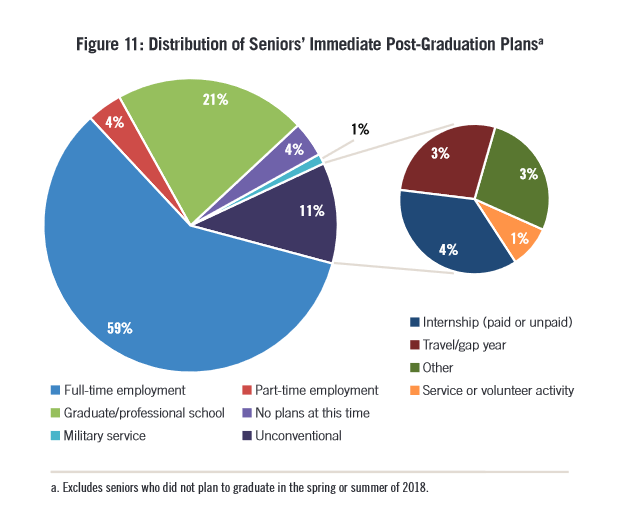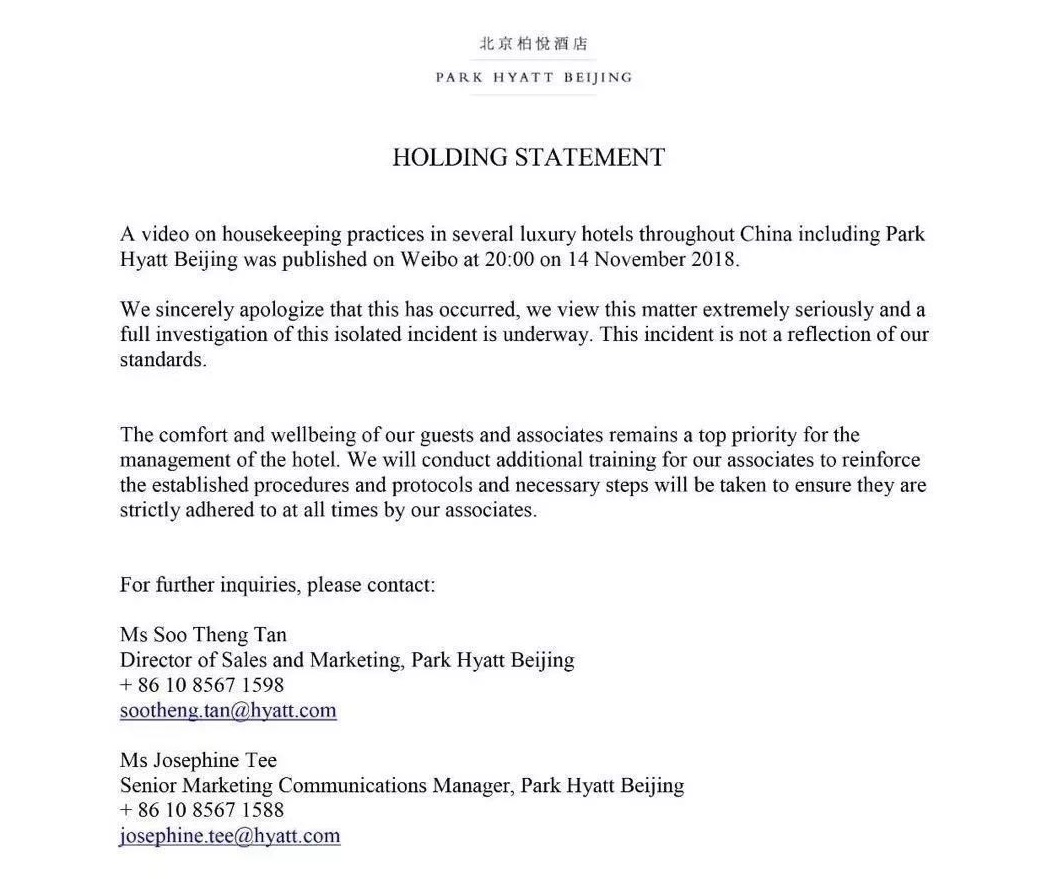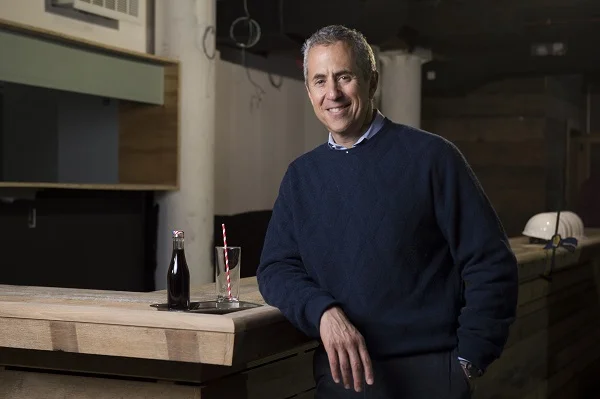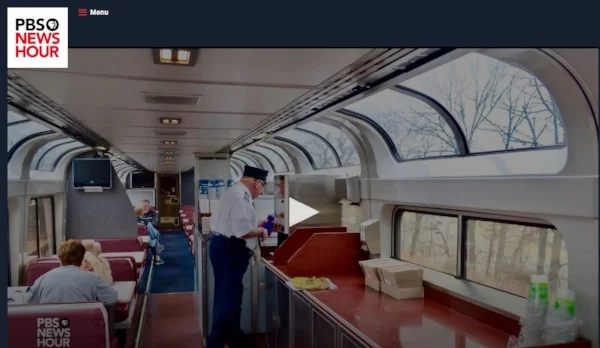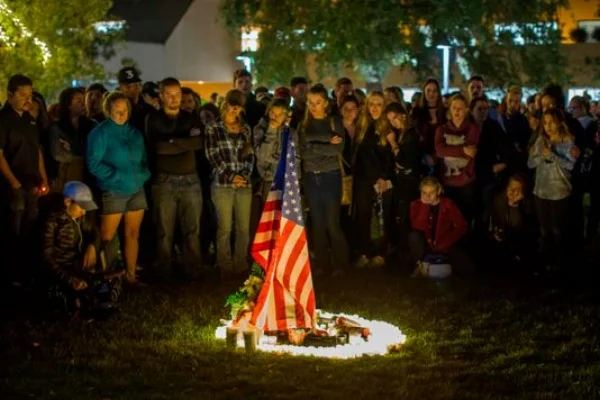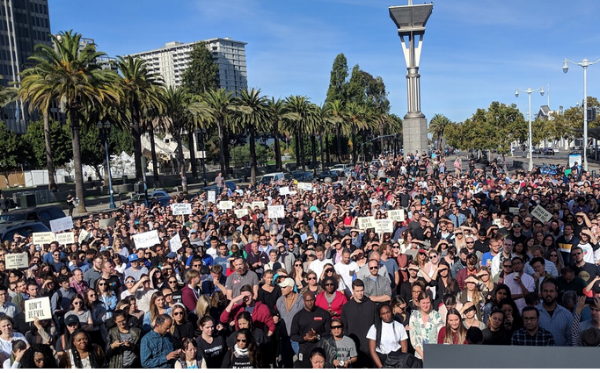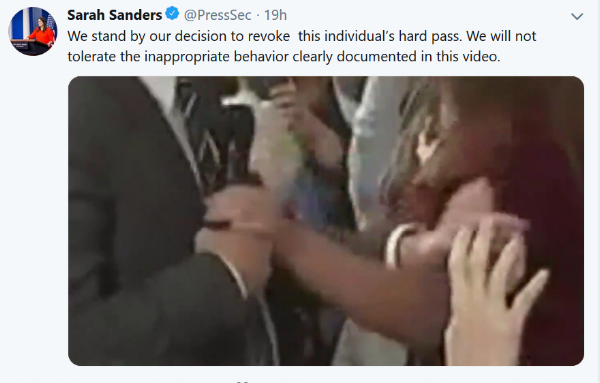Deutsche Bank on the Defense
With stock at an all-time low and a German government raid last week, Deutsche Bank is trying to reassure customers and shareholders. Finance chief James von Moltke said on CNBC, “To date, we’re not aware of any wrongdoing on our part.” The investigation relates to the Panama Papers, which are documents made public in 2016 that revealed tax havens for individuals from more than 200 countries.
Throughout the CNBC interview, von Moltke tries to put the issue into perspective. He says the investigation involves a small, trust services business that the bank sold earlier this year. However, some of the money laundering accusations involve current managers. Still, von Moltke claims that new precautions are in place today.
Deutsche Bank stock fell further on the news, losing 51% of its value this year.
Discussion:
Assess the CFO’s video interview with CNBC. What persuasive communication strategies do you observe?
Which are his strongest and weakest arguments?
Also assess his delivery skills: tone, rapport, volume, pace, and so on.
Marriott Security Breach
Personal information of more than 500,00 guests was stolen from the Starwood reservation system. Exposed data includes payment card information, and critics say the company could have avoided the breach years ago. In 2015, Starwood announced a small breach, which cybersecurity experts say should have inspired the company to do more at the time. Starwood argues it didn’t realize the risk, and Marriott leaders argue that they had not yet acquired Starwood. On Friday, Marriott shares were down 5.6%.
A notice at the top of the Marriott homepage reads, “For more information on the Starwood guest reservation database security incident, please click here.” Although the breach was from a Starwood database, the media is consistently reporting the news as “Marriott.” That link and a press release on the website both go to legal sounding statements, although they do provide FAQs at the bottom.
Lawsuits have already been filed against the company for failing to protect users’ data.
Discussion:
Is the company taking adequate responsibility for the breach? Explain your response.
How can Marriott respond to this crisis and protect the brand at this point?
How can the website information be improved? Consider the primary and second audiences, communication objectives, organization, writing style and so on.
Prep School Criticized for Abuse and False Apps
College prep school T.M. Landry has garnered national attention for helping Black students get into college, but all has not been well at the school. Students are speaking out about emotional and physical abuse as well as falsified college applications.
According to a New York Times report, examples of physical abuse include “forced to kneel on rice, rocks, or hot concrete for hours” and being “choked, yelled at, and berated.” Students report being told to lie on college applications about classes they took and the conditions under which they grew up, for example, exaggerating their poverty.
The Landrys, a married couple who run the school, defended their actions, saying they push kids to their limits. Mr Landry admits to physical contact, and he said, “Oh, I yell a lot.” Since a 2013 case against him that included probation, Landry says he no longer practices physical punishment. He also denied falsifying students’ applications.
College results have not been great. Students who spent more time at the prep school are more likely to withdraw or transfer to less demanding programs. The New York Times article describes an unaccredited school with little traditional programming, so students may not be academically prepared for the schools that admit them.
Discussion:
Assess the school website. The opening video features Mr. Landry, and the rest of the site boasts college acceptances. How convincing might families find the way the school is promoted? Other than admitting abuse, should the site say more to give parents and prospective students a more accurate picture of the school philosophy and practice?
How is this situation an example of failing integrity? Also consider intent versus impact. What could the founders' intent, and how is that different from the impact?
Lettuce Recall Data
An opinion piece in the Wall Street Journal highlights the value data for decision making. With the article title, “Lettuce Try Not to Panic,” Jim Prevor criticizes the Centers for Disease Control and Prevention’s (CDC) edict that “U.S. consumers not eat any romaine lettuce, and retailers and restaurants not serve or sell any”:
There are 43 people known to be infected with the outbreak strain of E. coli 0157:H7. The CDC interviewed 25 of them. Eighty-eight percent of those 25 people, as opposed to 47% of the general population, said they ate romaine lettuce in the week before they got sick.
From population data, the Prevor concludes that you have a 1 in 11 million chance of getting sick from Romain lettuce, and a 1 in 28 million chance of ending up in the hospital. The author makes the odds even more concrete:
If this outbreak were active every day, and you ate one salad a day, on average you would be hospitalized for E. coli once every 77,000 years.
Even these data, Prevor argues, are overstated for most of us. Children, older people, and people with compromised immune systems are far more likely to get sick than the average adult. As a result of the CDC warning, the author estimates “tens of millions of dollars in losses.”
On the CDC website, a “Food Safety Alert” details the investigation results and advice.
Discussion:
What’s your view of the CDC’s recommendation: better safe than sorry or overblown?
How well does Prevor argue his point? What persuasive strategies does he use? Which are his strongest and weakest arguments? What may be missing from his argument?
Help an audience visualize some of the data in Prevor’s article. What charts or graphs would be useful to help consumers make an informed decision?
Good News, Bad News About Student Preparation for Work
A survey of freshmen and seniors at 500 U.S. colleges shows that students feel positively about their career preparation. The According to the National Survey of Student Engagement (NSSE), 93% of students say what they learned in school is relevant to their future career, and perhaps surprisingly, students with professional majors agree only slightly more than students in arts and sciences programs.
This is good news. But a Chronicle of Higher Education article identifies a disconnect: employers aren’t so confident about graduates’ preparation. Employers want students to immediately apply skills on the job, but faculty may not be teaching specific work-related skills, such as running a meeting or writing memos—two examples from the Chronicle article.
Discussion:
Students of business communication certainly know how to write a memo—or more accurately, an email. What other skills should be included in a college curriculum for any major?
One argument is that employers are responsible for skills training, while the university teaches critical-thinking skills. What’s your view?
What report writing principles does the NSSE follow, and how could it be improved? Particularly analyze the charts and graphs, such as the one shown here.
Dolce and Gabanna Cancels Show and Apologizes
Italian fashion designer Dolce and Gabanna cancelled a major show scheduled in Shanghai and apologized to the Chinese people for an offensive ad and comments on social media. The ad showed Chinese-French model Estelle Chen, in separate videos, eating pizza and pasta with chopsticks. With stereotypical music in the background, the ads seem to mock the woman and a Chinese pronunciation of the company’s name.
After criticism on Weibo, the company made the situation far worse. Co-founder Stefano Gabbana posted negative comments, at right, about China and its people on Instagram, and then denied the comments, claiming his account had been hacked.
Later, Dolce and Gabbana leaders tried to recover by posting a statement on the company’s Instagram account: "We are very sorry for any distress caused by these unauthorized posts. We have nothing but respect for China and the people of China." Another post read, "Our dream was to bring to Shanghai a tribute event dedicated to China which tells our history and vision. It was not simply a fashion show, but something that we created especially with love and passion for China and all the people around the world who loves Dolce & Gabbana.”
They also posted an apology video.
Discussion:
What’s your view of the ad series? Can you see how people would think they are offensive? Why or why not?
How well did Dolce and Gabanna eventually recover from the incident? Analyze the apology video.
Which leadership character dimensions are illustrated by this situation?
GM Lays Off 15,000 Employees
General Motors will lay off about 15,000 employees and close five U.S. factories. About 2,250 employees accepted a voluntary buyout, which could include six months of pay. But that number wasn’t enough for GM to reach it goals.
About 8,000 salaried employees, or 15% of the workforce, will leave the company. Engineers and designers are hardest hit, and the company will hire more technology workers to focus on electric and hybrid vehicles. The move reflects shifts in consumer preferences against small cars, such as Cruze compact and Volt, in favor of SUVs and trucks. Gas prices are low, so people want larger, more convenient vehicles.
In a statement, GM outlined its plans for the future, and Chairman and CEO Mary Barra explained the decision:
“The actions we are taking today continue our transformation to be highly agile, resilient and profitable, while giving us the flexibility to invest in the future. We recognize the need to stay in front of changing market conditions and customer preferences to position our company for long-term success.”
President Trump said he spoke with Barra and was “very tough.” He also said he’s “not happy” about the plant closings and is hoping for the company to rebuild in Ohio.
Discussion:
Evaluate GM’s statement. What business writing principles are followed, and what could be improved?
What else, if anything, should GM do to maintain brand image during the cuts? For example, Barra could agree to media interviews. Should she? Why or why not?
Hotel Cleaning Caught on Video
Housekeepers in 14 hotels in China were caught on video using a towel or sponge to clean multiple surfaces, including toilets, showers, and glassware. Hotels included W Hotel Beijing, Bulgari Hotel in Shanghai, InterContinental Beijing Sanlitun, Hilton Beijing, Beijing JW Marriott Hotel, Peninsula Beijing, and Shangri-La Hotel Beijing.
So far, five of the hotels have issued statements. The Peninsula wrote, “The hotel will still take measures to strengthen the implementation of the standard procedures for room service staff to ensure all aspects meet the established standards of the Peninsula.” Park Hyatt in Beijing referred to the situation as an isolated occurrence.
China's Ministry of Culture and Tourism ordered hotels to review their practices and called for an investigation.
Discussion:
What oversight should hotels have for room cleaning?
Analyze Park Hyatt's message: audience, communication objectives, writing style, and so on. How well does the company address the situation?
This isn’t the first time such as report has become public about luxury hotels. Do you think these cases are isolated, as the Park Hyatt claims, or systemic?
Negative Reports About Facebook
Two recent articles cite trouble at Facebook. The first is a New York Times story titled, “Delay, Deny and Deflect: How Facebook’s Leaders Fought Through Crisis.” The report is a damning criticism of how the company, and particularly Mark Zuckerberg and Sheryl Sandberg, handled recent situations:
But as evidence accumulated that Facebook’s power could also be exploited to disrupt elections, broadcast viral propaganda and inspire deadly campaigns of hate around the globe, Mr. Zuckerberg and Ms. Sandberg stumbled. Bent on growth, the pair ignored warning signs and then sought to conceal them from public view. At critical moments over the last three years, they were distracted by personal projects, and passed off security and policy decisions to subordinates, according to current and former executives.
The article accuses the company’s response to Russia’s meddling in U.S. elections, data privacy issues, and hate speech and propaganda. The article describes aggressive lobbying and efforts to conceal Russia’s infiltration of the network.
The second article, a Wall Street Journal report, describes declining employee morale at Facebook. Criticism about the company and the declining stock price are getting difficult for employees to stomach. According to the Journal article, employees are questioning the company’s growth strategy and are concerned by a lack of innovation. Employees are also less optimistic about the company’s future. One year ago, 87% employees said they were optimistic; today, that number is 52%.
The Times article reports that Zuckerberg has been asked whether it’s time for new company leadership, and he has repeatedly said that he will not step aside.
Discussion:
What’s your view of the situation at Facebook? Is the Times article on target, too harsh, too lenient, or something else?
One possibility is that the company is experiencing a natural progression—a growth cycle that most companies experience. What do you think?
What are the value and potential downsides of employee surveys?
Nissan Chairman Is Arrested
Nissan’s chairman was arrested for financial misconduct, including under-reporting his income in securities fillings. Carlos Ghosn may have been engaging in improprieties for years.
The news came as a surprise to many. Ghosn is a popular business figure, credited with turning around Nissan, Renault, and Mitsubishi by forming an alliance and directing cost-cutting and layoffs. According to a Wall Street Journal article, the shock is felt particularly at Renault; a union leader described the reaction as “a feeling of stupefaction and a lot of anger.”
The French government has a 15% state in Renault, so President Emmanuel Macron also weighed in: “As a shareholder, the French state will remain extremely vigilant regarding the stability of the alliance.” At this point, officials are still trying to sort out the news and determine leadership going forward.
Nissan CEO Hiroto Saikawa delivered a news statement, translated in English on Bloomberg. The company also issued this matter-of-fact statement.
Nissan image source. Ghosn image source.
Discussion:
Why would a successful business executive engage in financial misconduct? What leadership character dimensions are lacking?
How does financial impropriety go on for years in a situation like this? Who should be accountable for the misconduct?
Assess Saikawa’s news statement. What works well to improve brand image, and what could be improved?
Too British for British Ads
British standards for voice personalities are changing. As one actor says, “I’m too posh, too middle class, too white, too male.” Jon Briggs was a popular choice for advertisements and is currently the British Siri.
But according to a Wall Street Journal article, voices like Briggs are “out of vogue.” Companies want voices that are less “commanding, elite-sounding” and “froufrou”:
For British consumers, the stiff-upper-lip speaking style of the nobility, where vowels are slightly flattened—so “happy” sounds like “heppy”—has become negatively associated with authority and privilege.
One ad executive said today’s jobs are going to those who are “able to hold a conversation . . . in a pub.” Companies are looking for voices that reflect the diversity of Britain, particularly, as the article says, “people from working-class backgrounds.”
British image source. Microphone image source.
Discussion:
With what types of British accents are you familiar? What’s your perception of people with those accents?
How does this article translate to the United States? What are the most common accents you hear in TV ads? Listen to a few examples. What does the person’s accent say about the brand?
Explain the relevance of authenticity or authentic communication to this story.
Student Is Escorted Out of Class
A biology lecturer at University of Texas at San Antonio called campus police about a student’s behavior. Another student in the class tweeted, “So this happened today in class, a girl had her feet up and the professor called the police after calling our class uncivil.” A video shows an African-American student being escorted out of the classroom.
The University posted a tweet soon after the incident:
Later, President Taylor Eighmy sent a letter to students announcing that the instructor will be replaced for the rest of the term and that the student will be welcomed back. The university is investigating the incident, including potential racial bias, because the student is African-American.
Discussion:
A student in the class posted that the instructor referred to the class as “uncivil.” What’s your view of civility in a classroom setting? What examples would describe an uncivil classroom?
Did the instructor do the right thing by calling campus police? Did campus police do the right thing by escorting the student out?
What other options are available to an instructor wanting to manage classroom behavior?
Announcing a Restaurant Closing
Danny Meyer gives us a great model of how to write a bad-news message. In his announcement about closing the restaurant North End Grill, Meyer demonstrates communicating with humility and transparency.
Meyer describes the pain involved in closing a restaurant, including the effect on employees. He admits to mistakes and relates this closing to Tabla, which closed four years ago. He didn’t need to remind us, but he does so humbly, and as a lesson to learn from failure.
Meyer’s message is encouragement for compassionate, transparent communication planning:
All too often in our industry, a padlock on the front door might be the very first notice employees, landlords, and suppliers receive that a restaurant will be closing.
He also teaches us that leading requires courage:
[W]hen reality dictates closing, we have a choice: to do so in secrecy and shame, or instead, with dignity, integrity, and pride.
Restaurant image source. Meyer image source.
Discussion:
Analyze Meyer’s full statement: audience, objectives, writing style, organization, etc. What works well, and what could be improved?
In what ways does Meyer’s statement illustrate vulnerability as a leadership strength?
One Way to Increase Understanding
Wanting a break from technology, singer and songwriter Gabriel Kahane traveled the United States by train, meeting people and hearing their stories. Right after the 2016 presidential election, Kahane rode Amtrak trains for almost 9,000 miles to understand how people across the country think and feel.
Kahane describes his strategy for what he calls “radical empathy”:
I set some ground rules for myself when I was on the train. One of the things that I was really interested in doing wasn't arguing with people. And I think that that is sort of one of the fundamental problems that we face right now, is this idea we all sort of have contempt for the other side.
We say, well, I just can't engage with that person. And there were some cases where I failed, and I would then go back to my sleeper car and write in my journal: You argued. You said you weren't going to do that.
Kahane challenges how much importance we place on “efficiency.” He says that downtime gives us space to reflect about shared, complex problems: “I think there's a real consequence to not having that space to just sit silently and think, what is it to be in this other person's body.”
Discussion:
What’s your view of “radical empathy,” as Kahane describes it? What is the value, and what are the downsides of his approach?
What character dimensions does Kahane illustrate in this story?
Cultural Differences: Putting Your Hand on Someone's Knee
On the front page of today’s Wall Street Journal, we see French President Emmanuel Macron’s hand on German Chancellor Angela Merkel’s knee. A online WSJ article is titled, “Merkel and Macron got along so well in Paris that a 100-year-old woman thought they were married.” The two looked affectionately at each other and held hands during a weekend in Paris at a World War I commemorative event.
Physical touching in U.S. companies is generally frowned upon and could inspire sexual harassment claims. But in Europe, the cultural norms and laws are different.
An image search for “Merkel and Macron” shows embraces and touching throughout the years.
Cover image source. Embrace image source.
Discussion:
Describe the cultural differences from your own experience and knowledge.
What’s your personal view of this type of touching at work among colleagues?
News Conference About Shooting
A former marine shot 12 people in a California bar, and local officials delivered a news conference. Ventura County Sheriff Geoff Dean spoke first (about 5:00 on the video) to explain officers’ response and what they knew at the time.
We see the sheriff get emotional when answering questions about his deputy, Sergeant Ron Helus, who also died.
The shooting was particularly painful for people at the bar who also survived the Las Vegas shooting about a year ago. One young man, Telemachus Orfanos, survived the earlier incident but not this one.
Discussion:
Assess Sheriff Dean’s statement for content, organization, and delivery. What worked well, and what, if anything, could be improved?
Assess how well Sheriff Dean responded to media questions.
Controversy About Wildfires
As wildfires rage in California, let’s look at controversy about the cause. So far, fires have taken 31 lives, and more than 200 people are missing. Governor Jerry Brown requested federal aid.
In a tweet, President Trump blamed California for poor forest management. This drew a harsh response from the California Professional Firefighters association, which called the statement “dangerously wrong.” In a statement, the group defended state actions, firefighters, and victims:
“The president’s message attacking California and threatening to withhold aid to the victims of the cataclysmic fires is Ill-informed, ill-timed and demeaning to those who are suffering as well as the men and women on the front lines.”
Later, the president tweeted a more compassionate message:
More than 4,000 are fighting the Camp and Woolsey Fires in California that have burned over 170,000 acres. Our hearts are with those fighting the fires, the 52,000 who have evacuated, and the families of the 11 who have died. The destruction is catastrophic. God Bless them all.
Discussion:
Analyze the California Professional Firefighters statement: audience, objectives, writing style, organization, etc. How well does the group defend its position?
How well does the statement illustrate principles of persuasion: logical argument, emotional appeal, and credibility?
Which leadership character dimensions does this situation illustrate?
Google and Facebook Drop Forced Arbitration
Following Google employee walkouts and demands, both Google and Facebook have eliminated the requirement for employees to settle sexual harassment complaints internally. Tech companies Uber, Lyft, and Microsoft made the same change in the past couple of years.
Previously, all of these companies had clauses in their policies, which employees agree to when hired, that forced employees to give up their right to sue the company for sexual harassment.
Critics of forced arbitration say the policy puts victims at a disadvantage. Businesses are more likely to win cases in arbitration than in front of a judge. The internal practice also protects the company from public scrutiny and allows perpetrators to more easily get jobs in other companies, continuing the cycle of harassment.
Google CEO Sundar Pichai announced Google’s decision and other policy changes in an email to employees, which was posted on the company’s blog:
Hi everyone,
At Google we try hard to build a workplace that supports our employees and empowers them to do their best work. As CEO, I take this responsibility very seriously and I’m committed to making the changes we need to improve. Over the past few weeks Google’s leaders and I have heard your feedback and have been moved by the stories you’ve shared.
We recognize that we have not always gotten everything right in the past and we are sincerely sorry for that. It’s clear we need to make some changes.
Going forward, we will provide more transparency on how we handle concerns. We’ll give better support and care to the people who raise them. And we will double down on our commitment to be a representative, equitable, and respectful workplace.
Today, we’re announcing a comprehensive action plan to make progress. It’s detailed here and I encourage everyone to read it. Here are some of the key changes:
We will make arbitration optional for individual sexual harassment and sexual assault claims. Google has never required confidentiality in the arbitration process and arbitration still may be the best path for a number of reasons (e.g., personal privacy) but, we recognize that choice should be up to you.
We will provide more granularity around sexual harassment investigations and outcomes at the company as part of our Investigations Report.
We’re revamping the way we handle and look into your concerns in three ways: We’re overhauling our reporting channels by bringing them together on one dedicated site and including live support. We will enhance the processes we use to handle concerns—including the ability for Googlers to be accompanied by a support person. And we will offer extra care and resources for Googlers during and after the process. This includes extended counseling and career support,
We will update and expand our mandatory sexual harassment training. From now on if you don’t complete your training, you’ll receive a one-rating dock in Perf (editor's note: Perf is our performance review system).
We will recommit to our company-wide OKR around diversity, equity and inclusion again in 2019, focused on improving representation—through hiring, progression and retention—and creating a more inclusive culture for everyone. Our Chief Diversity Officer will continue to provide monthly progress updates to me and my leadership team.
I hope you’ll take the time to read the full range of actions we’re announcing today.
Thank you all for the feedback you’ve shared with us. This is an area where we need to continually make progress and are committed to doing so. We often hear from Googlers that the best part of working here is other Googlers. Even in difficult times, we are encouraged by the commitment of our colleagues to create a better workplace. That’s come through very strongly over the past few weeks.
-Sundar
Discussion:
Analyze Pichai’s message: the audience, communication objectives, organization, writing style, etc. What works well, and what could be improved?
Overall, how well does the message address employees’ concerns?
Pichai mentions that privacy may be a reason employees choose the arbitration process, but the Times article says arbitration mostly protects the company’s privacy? Should Pichai have omitted this line?
What, if any, downsides do you see of Google responding to employees’ demands in this way?
White House Tweets Doctored Video
There is no love lost, as they say, between President Trump and CNN Correspondent Jim Acosta. Now, Acosta has been suspended from the White House because of what Press Secretary Sarah Sanders described as “a reporter placing his hands on a young woman just trying to do her job as a White House intern.”
However, Sanders posted a video that Storyful compared to C-SPAN’s, and a different story emerges. In the C-SPAN version, Acosta’s hand inadvertently touches the intern’s arm. The White House version omits three frames, misleading viewers to see more aggressive touching—a “chop.”
A Wall Street Journal article and a Wired report show the videos frame by frame, side by side.
CNN posted that the news organization stands by Acosta, and Sanders tweeted that the White House stands by its decision.
Discussion:
One theory is that the White House obtained the doctored video from InfoWars, a conservative news organization. If this is true, should the White House staff have done a better job vetting the source?
Assuming the White House didn’t know the video was edited, what should they do or say now?
Analyze the unedited video. What, if any, responsibility does Acosta have for the incident?
#MicrophoneMeghan is trending. Who’s responsible for the (probably) unwanted attention?
Timing Bad-News Messages
This week, we saw two examples of timing communications to improve image.
President Trump waited until after the important mid-term elections to fire Attorney General Jeff Sessions. President Trump wasn’t happy with Sessions since he recused himself from the Russia election interference investigation back in 2017.
Although Sessions did technically “resign,” he did so at the President’s request. Sessions confirms this in his resignation letter, which begins, “At your request, I am submitting my resignation.”
Facebook capitalized on a busy news day to announce bad news: a report that the company didn’t do enough to stop anti-Rohingya propaganda on its platform. The site may have contributed to escalated violence in Myanmar. Skimm writers joked, “What to say when the midterms are dominating the headlines… Time to drop some bad news. Right, Facebook?”
Discussion:
Why didn’t President Trump fire Jeff Sessions after he recused himself? Why is the timing better now, more than a year later?
What other examples have you seen of companies taking advantage of news cycles?
The benefits of reporting bad news on a slow news day may be obvious. What are the risks?










